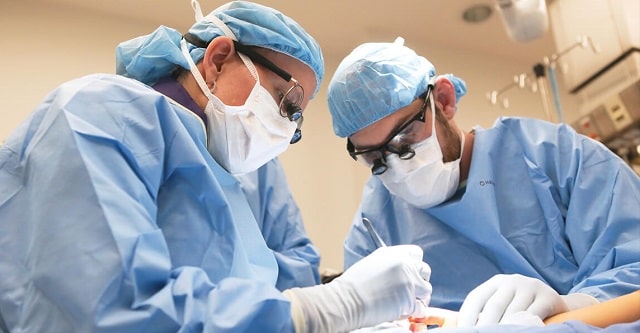
Are you suffering from stiff or aching joints? Perhaps you have a long term chronic condition that affects your bones? If so, you may be considering orthopedic surgery.
If you've been living with painful joints for a long time, you'll know how deliberating and painful this can be. You may be considering surgery. If so, you should know that surgery comes with many risks, and it's likely that your doctor will first recommend alternative treatments such as massage, physiotherapy, or painkillers.
What is Orthopedic Surgery?
Orthopedic surgery is an operation that's carried out by a doctor who specializes in the treatment of the skeleton system. This type of doctor is known as an orthopedic surgeon. Orthopedic surgeons have been trained to solve issues with patients' bones and joints; they are also able to repair damaged ligaments and tendons.
Orthopedic surgery is commonly used to improve the lives of patients who have problems that arise in their skeletons. In some cases, orthopedics will also deal with issues that originate with the nervous system. This includes spinal injury. Skeletal problems can be caused by injury or as a result of the aging process. Some people may be born with issues that an orthopedic surgeon can correct. Orthopedic problems can be acute if an injury has occurred, or chronic if it's an ongoing problem caused by aging.
Orthopedic surgeons often specialize in one particular problem, but some will run a general clinic and treat all types of conditions. They can perform operations for a variety of conditions, including joint replacements, amputation, operations to improve spinal injury or hand reconstruction surgery.
Some orthopedic surgeons have chosen to specialize in the treatment of trauma and treat injuries. This is often overlapped with sports medicine as many injuries are caused by playing sport.
Choosing An Orthopaedic Surgeon
The first step in getting the correct treatment or operation is to find a qualified orthopedic surgeon. A good Orthopaedic surgeon should try to treat your condition in alternative ways first before recommending surgery. If an operation is necessary, your doctor or surgeon should be able to put your mind at rest and be able to answer any questions you have. They should discuss possible complications that may arise, and you should use all the information to decide whether or not to go ahead with the surgery.
Before the orthopedic surgery can be carried out, you'll need to undergo several tests; these are likely to include x rays, CT scans, MRI scans, and blood tests. On the day of surgery, you'll have blood and urine tests. Major surgery will also require that an electrocardiogram is taken before operating.
What Are The Risks Of Having Surgery
There is a risk of scarring, as well as more life-threatening problems such as heavy bleeding, infection, or an allergic reaction to the aesthetic. You may experience inflammation. This is especially common in joint replacement operations where a pin or prosthesis has been introduced to the body as the body thinks it's a foreign object. There's also a risk of damage to the nerves or spinal cord.
